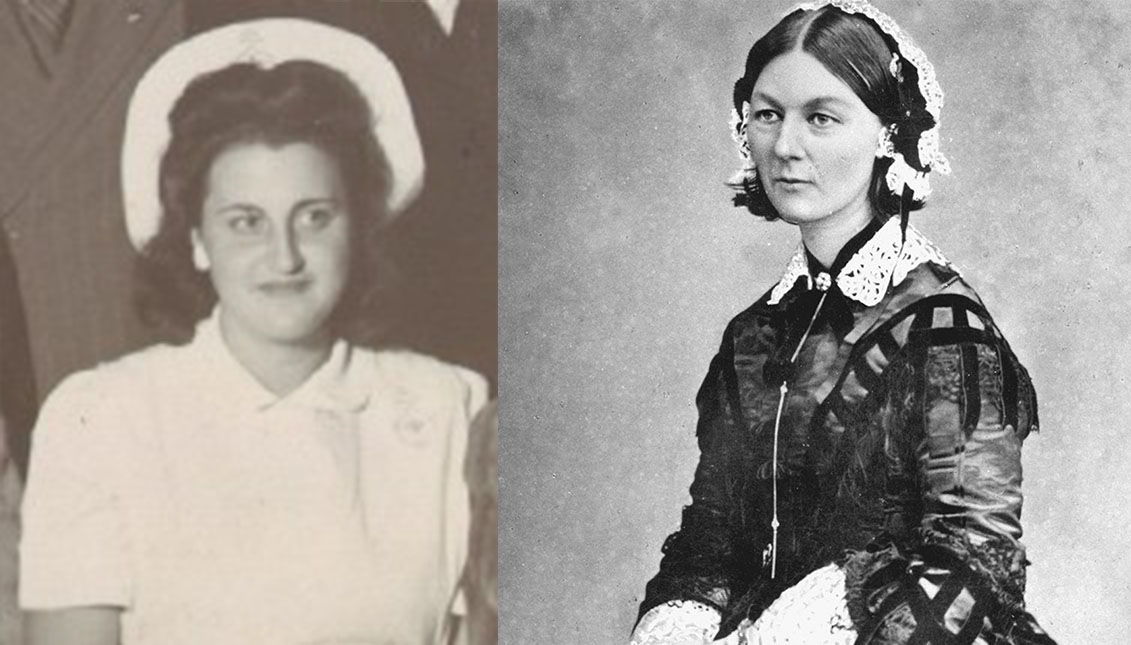
Who was Elvira Dávila Ortiz, the Latina Florence Nightingale?
A pioneer of transfusions in Colombia and a nurse in the United States during World War II, Dávila carried her vocation "in her blood."
The health crisis has pulled out from under the carpet many realities that we had not wanted to see until now, but it has also placed health professionals in a preeminent place, whom we have seen working grueling days stuffed in isolation suits and facing uncertainty and numerous human losses on the front line.
"Don't call us heroes," a Spanish doctor told this newspaper at the beginning of the pandemic, referring to the fact that by placing health professionals in this position, we were losing sight of the fact that they needed more resources to do their job and that the State was not up to the task.
Today, when it seems that the clouds are beginning to dissipate with mass vaccination in many countries, we celebrate International Nurses Day by remembering one of the most important nurses in history. And, no, it is not Florence Nightingale, the "lady with the lamp," but a Latina.
In fact, Colombian.
"The day I don't learn something new, that day is not worth it," once said Elvira Dávila Ortiz, who from the age of 18 fought to fulfill her dream of becoming a nurse and succeeded with flying colors. So much so that she went on to found the first Blood Bank in Colombia and performed the first transfusions in her country.
Graduating in 1943, Elvira became interested in blood transfusions and began a doctoral thesis, which at that time and in Colombia was a rara avis for medicine.
"Transfusions at that time had not been successful. Even in the First World War, plasma transfusions were performed, but not blood transfusions," she recalled much later.
After learning from her research, Dávila began working with very seriously ill newborns at the Hospital de la Misericordia in Bogotá:
"As some babies were dying, they let me practice on them... and to my joy they all got better," she recalled.
RELATED CONTENT
The good results took her to another hospital, San Juan de Dios, where she treated patients with anemia and tropical diseases.
Just when she finally presented her doctoral thesis on blood and plasma transfusions, one of the members of the jury, Professor Jorge Cavalier, who was also president of the Red Cross in the country, proposed a project that would make Elvira a pioneer: the creation of the first blood bank in Colombia.
The so-called "Bavaria" had to face many difficulties, among them the absence of voluntary blood donors. So the nurse started asking friends and acquaintances to collaborate, and later began to pay for the donated blood.
"I earned the nickname of the vampire," joked Dávila, who at the time performed a blood test on the donor to make sure he or she did not have syphilis, which was "the AIDS of the time."
Her international breakthrough came during World War II, when she decided to travel as a volunteer to Memorial Hospital in New York, where nurses were needed. There she had to work assisting in complicated surgeries and was also trained in that field.
When she returned to Colombia and again in collaboration with Cavelier, she set up operating rooms at the Samaritana Hospital, which was directed by the professor. But new problems appeared.
Those who performed the nursing duties at that time were mostly nuns or, in some cases, employees of the service. Thus, Elvira had to create a nursing school attached to the university while she continued to exercise her vocation until maturity.











LEAVE A COMMENT:
Join the discussion! Leave a comment.